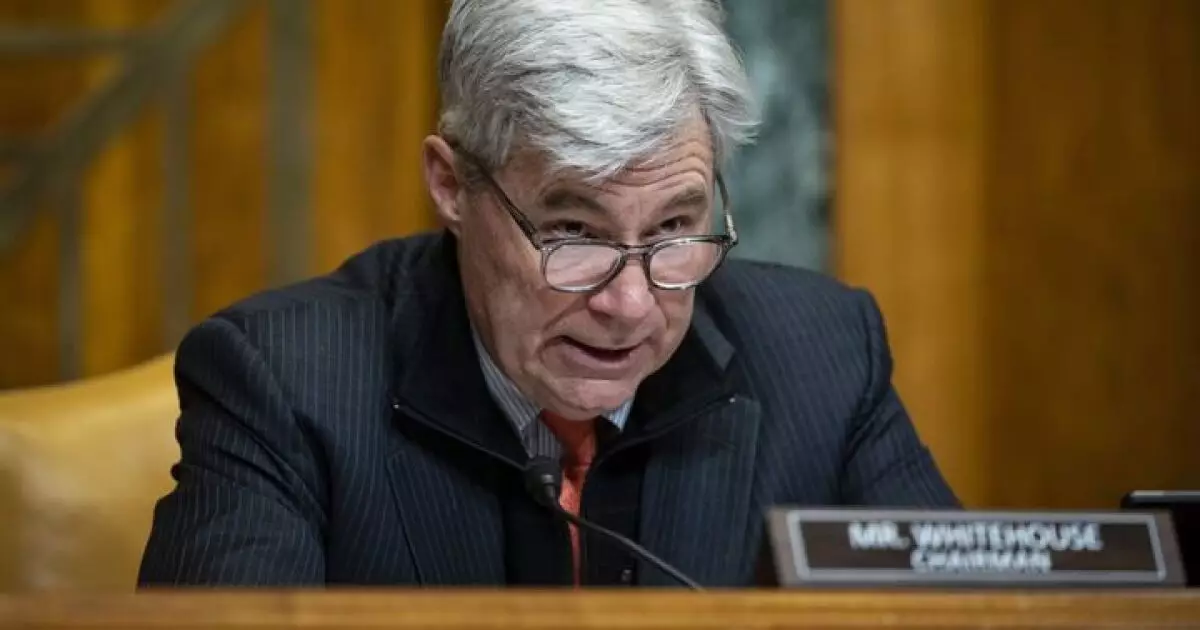The Senate Environment and Public Works Committee is currently grappling with a complex array of challenges as it seeks to facilitate infrastructure development in a politically charged environment. Amidst persistent pressure from the Trump administration, which has been criticized for its restrictive approach to federal funding, the committee is striving to cut through bureaucratic red tape that hampers critical infrastructure initiatives. One of the prevailing sentiments expressed in recent committee hearings is the need for Democrats to establish a clear stance on permitting reform, particularly in light of the current administration’s perceived disregard for congressional authority and judicial oversight. This reflects a growing frustration over stalled projects and delayed access to allocated funds.
As highlighted by Senator Sheldon Whitehouse, significant federal funds remain locked away due to executive decisions that defy established legal frameworks. This “fog bank of silent executive contempt,” as he aptly puts it, underscores a deteriorating relationship between federal executive power and legislative oversight. The opaqueness surrounding the allocation of these funds not only frustrates legislators; it also has tangible repercussions for communities reliant on these resources for development. With bipartisan support necessary to advance infrastructure projects, the ongoing political standoff raises questions about the future of essential energy and housing initiatives.
Interestingly, the committee’s discussions have turned a critical eye on congressional accountability, signaling a recognition of the broader implications of inaction. The chair of the committee, Senator Shelley Moore Capito, pointed out that in the absence of adequate congressional measures, obstructive judicial tactics have emerged, which serve to delay or derail projects altogether. This acknowledgment of legislative shortcomings is pivotal; it suggests a more comprehensive approach may be required to navigate the hurdles that presently challenge infrastructure progress.
The bipartisan Infrastructure Investment and Jobs Act, alongside the Inflation Reduction Act, originally envisioned a revitalization of America’s infrastructure landscape. However, recent shifts away from clean energy initiatives by the Trump administration have thrown many of these projects into jeopardy. Key stakeholders, including labor unions such as the Laborers’ International Union of North America (LIUNA), have sounded the alarm over job losses stemming from halted offshore wind leases—a critical source of employment for many in the sector. These disruptions illustrate how political shifts can have cascading effects on local economies, threatening not just employment but also the stability of entire industries.
Adding to the complexity, local permitting restrictions have emerged as a significant barrier to meeting the housing demands in various states. The National Association of Home Builders (NAHB) has echoed concerns among state officials about the pressing need for affordable housing. NAHB representatives advocate for increased federal support, such as Community Development Block Grants, to catalyze housing development. This approach recognizes the vital role that local governance plays in the broader context of national infrastructure challenges—a reminder that state and federal cooperation is essential for tackling the multifaceted housing crisis.
The current infrastructure debate encapsulates the clash of political ideologies amid urgent societal needs. Without a collaborative approach to permitting reform and responsible project funding, essential infrastructure developments—spanning energy, housing, and more—risk stagnation. As legislators, industry leaders, and local officials navigate this intricate landscape, the imperative remains clear: collaboration and accountability are crucial for overcoming the present roadblocks. Embracing strategic partnerships and fostering an open dialogue can empower the drive toward effective infrastructure solutions that serve all Americans.


Leave a Reply